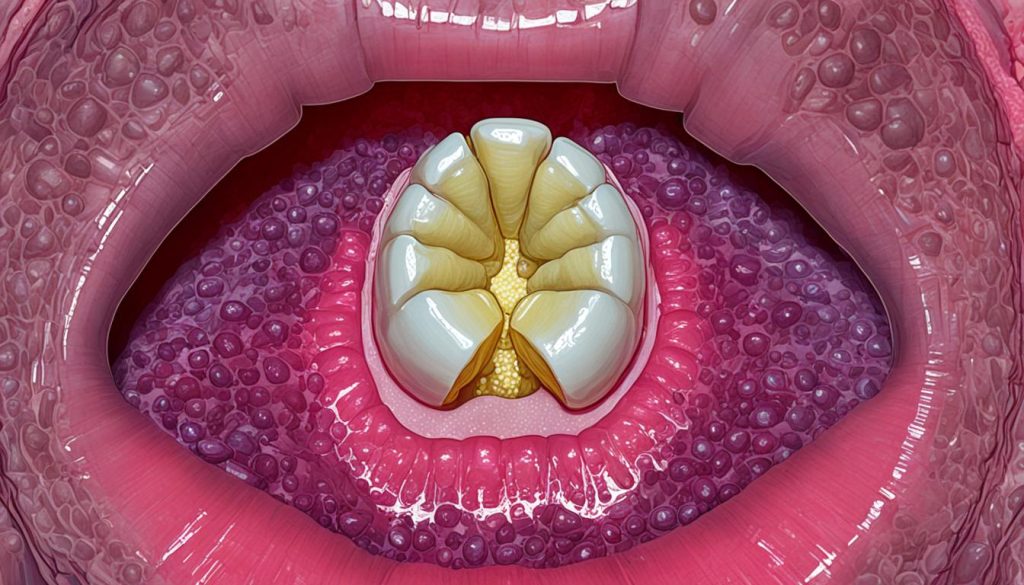Tonsil stones can be a bothersome condition that affects many individuals. These small stones form in the tonsils and can lead to symptoms such as bad breath and inflammation. If you are experiencing discomfort or notice signs of tonsil stones, it’s important to know how to effectively remove them.
There are various methods available for tonsil stones removal. In this article, we will explore both home remedies and medical treatments that can help address this issue. Whether you prefer to try natural remedies or seek professional assistance, there are suitable options for everyone.
If you are interested in learning how to get rid of tonsil stones, continue reading to discover effective treatments and preventive measures that can make a significant difference in your overall well-being.
How to Get Rid of Tonsil Stones Effectively?
Home Remedies for Tonsil Stones
Tonsil stones, also known as tonsilloliths, can be bothersome and cause discomfort. Fortunately, there are several effective home remedies that can help get rid of tonsil stones and alleviate associated symptoms. These remedies provide a natural and non-invasive approach to managing tonsil stones.

Gentle Water Irrigation
One popular home remedy for tonsil stones is low-pressure water irrigation. Using a water flosser or oral irrigator, aim a gentle stream of water at the tonsil area to dislodge and remove the stones. This method can be particularly effective for tackling tonsil stones that are not visible to the naked eye.
Gargling with Warm Salt Water
Gargling with warm salt water is another effective remedy for tonsil stones. The salt water helps to reduce inflammation, alleviate discomfort, and break down the stones. Simply dissolve half a teaspoon of salt in a cup of warm water, gargle thoroughly for 30 seconds, and spit out the mixture. Repeat this process several times a day for best results.
Apple Cider Vinegar Solution
Apple cider vinegar is a natural remedy that can help eliminate tonsil stones. Its acidic properties can break down the stones and prevent their recurrence. Mix 1 to 2 tablespoons of apple cider vinegar with a cup of warm water and gargle with the solution for 30 seconds. Spit it out and repeat several times a day for optimal benefits.
Cotton Swabs and Coughing
Some people find relief from tonsil stones by using cotton swabs to gently dislodge and remove the stones. However, caution should be exercised to avoid causing any injury or irritation to the tonsils. Additionally, coughing forcefully can sometimes help dislodge and expel tonsil stones. It’s important to note that these methods should be used with care to avoid any potential harm.
Incorporating these home remedies into your oral hygiene routine can help manage and prevent tonsil stones. However, if the symptoms persist or worsen, it is advisable to consult a healthcare professional for further evaluation and appropriate treatment.
Medical Treatment for Tonsil Stones
In some cases, medical treatment may be necessary to remove tonsil stones. If home remedies are not effective or if a person has recurring tonsil stones, it is advisable to consult a doctor. They may recommend a tonsillectomy, which involves surgically removing the tonsils. However, this procedure is usually reserved for cases where tonsil stones are causing significant symptoms or complications.
| Treatment Options for Tonsil Stones | Pros | Cons |
|---|---|---|
| Tonsillectomy | – Removes tonsils completely, eliminating the possibility of future tonsil stones – Can provide long-term relief |
– Generally reserved for severe cases or recurring tonsil stones – Surgical procedure with potential risks and recovery time |
| Tonsil Stone Removal with Tools | – Targeted removal of individual tonsil stones – Quick procedure with minimal recovery time |
– May not address the underlying cause, leading to future tonsil stones – Potential discomfort during the procedure |
| Laser Tonsil Cryptolysis | – Non-surgical option – Precise laser treatment to remove the crypts where tonsil stones form |
– Multiple sessions may be required for complete removal – Possibility of recurrence in some cases |
It is important to note that the appropriate treatment option will depend on the severity and frequency of tonsil stones. A doctor will be able to provide a proper diagnosis and recommend the most suitable treatment plan.
When to Consider Medical Treatment?
If home remedies have been attempted without success or if tonsil stones are causing persistent symptoms such as frequent sore throat, difficulty swallowing, or recurrent bad breath, consulting a healthcare professional is advised. A thorough evaluation will help determine if medical treatment for tonsil stones is necessary.

Symptoms and Complications of Tonsil Stones
Tonsil stones, also known as tonsilloliths, can often be asymptomatic, but in some cases, they can cause several uncomfortable symptoms and complications. It’s important to be aware of these signs to address the issue promptly.
Symptoms of Tonsil Stones
The presence of tonsil stones can lead to various symptoms, including:
- Bad breath (halitosis): Tonsil stones can produce a foul odor, leading to persistent bad breath.
- Inflammation: Irritation and inflammation of the tonsils may occur due to the presence of tonsil stones.
- Discomfort or pain: Tonsil stones can cause discomfort or pain in the throat, usually localized near the tonsils.
- Difficulty swallowing (dysphagia): Larger tonsil stones or those located in a position that obstructs the throat may make swallowing challenging.
- Pain radiating to the ears: Tonsil stones can cause referred pain that extends to the ears.
- Enlarged tonsils: The presence of tonsil stones can lead to swollen or enlarged tonsils.
Complications of Tonsil Stones
While most tonsil stones are harmless, they can sometimes lead to complications, such as:
- Infections: In rare cases, tonsil stones can become a breeding ground for bacteria, leading to tonsillitis or other infections. Medical attention may be required in such situations.
To get a better understanding of the condition, here’s an image depicting the location of tonsil stones:

Preventing Tonsil Stones
Tonsil stones can be a nuisance, causing discomfort and bad breath. However, there are steps you can take to prevent their formation and maintain good oral health. Practicing regular oral hygiene is key to reducing the risk of tonsil stones.
- Brush your teeth: Brushing your teeth at least twice a day helps to remove food particles and bacteria from your mouth, preventing them from accumulating in your tonsils.
- Floss regularly: Flossing helps to remove food debris from between your teeth and along the gum line, minimizing the chances of bacteria buildup.
- Rinse with mouthwash: Using an antimicrobial mouthwash can help kill bacteria in your mouth and throat, reducing the likelihood of tonsil stone formation.
- Avoid tobacco: Smoking and chewing tobacco can contribute to oral health problems, including the formation of tonsil stones. Quitting tobacco can improve your overall oral health and reduce the risk of tonsil stones.
Taking these preventive measures can significantly reduce the risk of tonsil stones. However, if you continue to experience symptoms or have concerns, it is advisable to consult a healthcare professional for further evaluation.

| Preventive Measures | Effectiveness |
|---|---|
| Regular brushing | Highly effective |
| Flossing regularly | Highly effective |
| Using mouthwash | Effective |
| Avoiding tobacco | Highly effective |
Conclusion
Tonsil stones, also known as tonsilloliths, can be a source of discomfort and can lead to bad breath and inflammation. Fortunately, there are effective ways to get rid of tonsil stones, both through home remedies and medical treatments.
Home remedies such as using low-pressure water irrigation, gargling with warm salt water or apple cider vinegar, and practicing good oral hygiene can help dislodge and prevent tonsil stones. These methods can be a convenient and cost-effective way to manage the condition.
If home remedies are not effective or if you have recurrent tonsil stones, it is advisable to consult a doctor. They may recommend medical treatments, including a tonsillectomy, to permanently remove the tonsil stones. However, it’s important to note that these procedures are usually reserved for cases where tonsil stones are causing significant symptoms or complications.
To prevent tonsil stones from recurring, maintaining good oral hygiene practices is essential. Regular brushing, flossing, and rinsing can help remove bacteria and food particles that contribute to the formation of tonsil stones. It’s also important to avoid tobacco and maintain overall oral health.
If you experience persistent or worsening symptoms related to tonsil stones, it’s important to seek medical attention for proper diagnosis and treatment. A healthcare professional can provide personalized advice and guidance to manage the condition effectively and provide relief from the symptoms.
FAQs
What are the medical treatments available for tonsil stones?
If home remedies are not effective or if tonsil stones are recurring, a doctor may recommend a tonsillectomy, which involves surgically removing the tonsils.
What are the symptoms and complications of tonsil stones?
Tonsil stones can lead to symptoms such as bad breath, inflammation, difficulty swallowing, pain that radiates to the ears, and enlarged tonsils. In rare cases, they can also cause infection and may require medical attention.
How can I prevent tonsil stones?
Preventing tonsil stones can be achieved through good oral hygiene practices, including regular brushing, flossing, and rinsing. Avoiding tobacco and maintaining overall oral health can also help reduce the risk of developing tonsil stones.
Are tonsil stones normal? Do they go away on their own?
Tonsil stones are not considered normal, but they can occur. While they may occasionally fall out on their own, they often require intervention for complete removal.

